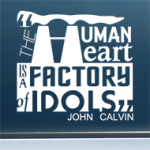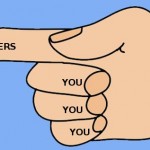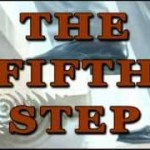 “Honour your father and your mother, that your days may be long upon the land which the Lord your God is giving you.” (Exodus 20:12)
“Honour your father and your mother, that your days may be long upon the land which the Lord your God is giving you.” (Exodus 20:12)
Earlier this year, one of our friends called for help.
Correction. She sent out an S.O.S.
She was totally devastated by what she heard her own mother say over the phone.
To put it bluntly, her mother basically told her that as far as she was concerned, their relationship was over.
She was no longer her daughter.
She wanted nothing more to do with her.
When our friend’s husband asked why, her mother gave a list of grievances.
None of them were grievous enough to warrant such an egregious choice.
What should she do?
As she poured out her heart, it was pretty obvious that there was a lot of hurt in their relationship over a long period of time.
Not just a few years either. A lot of stuff had accumulated over the decades.
Now it had all come to a head.
Not only were they far apart in the geography of the heart. They were also physically separated by thousands of miles.
Which made it even more difficult to do something quickly to bring about some resolution.
We talked about some of the possible actions she could take strategically to re-establish communication.
Such as…contact an intermediary, a trusted friend who could at least bend her mother’s ear, and perhaps even flex her heart.
Or appeal to her mother’s pastor to shed some light on the heart of the matter.
Yes, in times such as these, we need to be “as wise as serpents.”
Yet, it was just as important, if not more, to be “as innocent as doves.”
That’s when the Lord reminded me of the fifth commandment.
“Honour your father and your mother.”
I shared with my friend the struggle Carol Arnott (in the pic with Sulojana) had with her mother and how she was able to deal with it in a God-honouring way.
As a matter of fact, I loaned her a copy of “Grace and Forgiveness” by John & Carol Arnott, where Carol shares her story in detail (available as a paperback from CTF Toronto or as a Kindle download).
Carol points out that when God gave the command to honour our parents, He did not attach any riders to it.
Such as: “Only if they treat me with honour too.”
Or: “To the extent that they honour God.”
Honour. Period. Ouch!
In the end, our friend decided to do nothing more proactive than offer an apology.
“Whatever I may have done to offend you, Mom, please forgive me.”
Signed: “Your loving daughter …………”
That’s all the hand-written note said.
No excuses. No justification. No pointing fingers. No guilt trips. No persuasion.
Needless to say prayer teams united their hearts and agreed with her desire for reconciliation.
Was there a response to the note?
None. Nyet. Nada.
On Valentine’s Day, she phoned her mom and left a message on the answering machine:
“Mom, this is ……….. Just called to wish you a Happy Valentine’s Day.”
Click.
Was it reciprocated?
Mais, non! Natürlich nicht!
Nothing else to do but to wait and pray.
Then do it in reverse. Pray and Wait.
It was not easy.
But, to her credit, our friend took this time to come clean before God about all the resentment she had harboured in her heart for decades, using prayers she found in the aforementioned book.
She had a peace about her relationship with her Father in heaven and her mother on earth.
Tinged with sadness that her mother had not responded with: “I forgive you” and “I love you” as did her Father.
Weeks went by.
One day her husband had a simple strategy downloaded to him from heaven. He acted on it right away.
A few days later…
“Ring-ring…Ring-ring”
“Hi, ……………, this is Mom.”
“Mom? Hi, Mom! So nice to hear from you!”
The tears began to flow, as did the words.
“I love you, Mom!”
“I love you too. You’re my daughter. Always have been. Always will be.”
“Honour your father and your mother.” Period.
Pays to obey, eh?







Follow Us